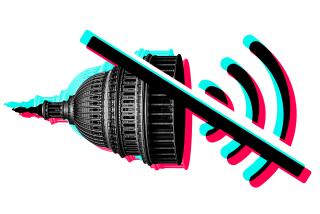Listen.com Gets Rights to Catalogs
Alarmed by the sharp drop in CD sales and steady rise in Internet piracy, the major record companies finally are picking up the pace of their lumbering efforts to distribute songs online.
In a milestone for the record industry, Listen.com today is expected to become the first online music service authorized to offer songs on demand from all five major record companies--something that a host of pirate services have been doing for years. Listen.com is expected to announce a deal with Universal Music Group today, giving the company a complete set of major-label licenses.
Meanwhile, Warner Music Group has granted online music distributor FullAudio Corp. the right to sell downloadable songs that can be burned onto CDs--a first for both companies. The move lets privately held FullAudio expand beyond music rentals, enabling subscribers to make permanent copies of downloaded songs for an extra fee.
Analysts said the label-backed services still have flaws that will make it hard for them to compete with unauthorized free sources of music online, such as the Kazaa and Morpheus file-sharing networks. But the industry-supported services are improving at an accelerating pace as the major labels open their catalogs, cut prices and reduce restrictions on songs delivered online.
File-sharing networks have been growing in popularity since 1999, when a free service by Napster Inc. started grabbing headlines by letting consumers copy virtually any song they wanted from other usersâ computers. These services helped popularize MP3 files, which could be freely duplicated, burned onto CDs or moved to portable devices with no loss in fidelity.
By contrast, the first industry-backed services to let subscribers play or download songs on demand didnât appear until late last year. And all of these services were handicapped by limited selections and restrictive formats that made it hard or even impossible to move songs from a computer to a stereo, car or portable device.
James Glicker, president of music services at FullAudio, said the main problem has been getting the labelsâ management and artistsâ representatives to recognize that they have to change the way they do business.
âThe record companies havenât integrated new media into their overall strategy. Theyâre coming around, though,â Glicker said, adding, âI think people will be surprised what comes out over the next six months.â
Whatâs motivating them is CD sales, which fell 4% in the U.S. in 2001. Theyâre particularly alarmed by the sharp decline in sales of many hit albums after their first week in stores, a phenomenon that Glicker blamed on home CD copying.
Lawrence Kenswil, president of Universal Elabs, said he has not had problems convincing top Universal executives that the company needed to act. But Kenswil agreed that some industry executives didnât respond to the changes wrought by the Internet because they didnât feel the urgency.
âWhen sales start dropping, it means, guess what? Itâs no longer a long-term or medium-term consideration, itâs a short-term consideration,â Kenswil said. âTo that extent, I think people are realizing thereâs no putting it off anymore.â
The biggest Internet music company left behind in the shifting marketplace may be MusicNet, an online distributor co-owned by AOL Time Warner Inc., EMI Group, Bertelsmann and RealNetworks Inc.
MusicNet negotiated licenses early last year that didnât enable subscribers to accumulate music over time, burn downloaded songs onto CDs or move them to portable devices.
Spokeswoman Ann Garrett said the company expects to win better licenses shortly. She added, âWe know that the current service has its flaws, so we will be putting out a version that will meet consumersâ needs.â
Listen.com operates Rhapsody, an online jukebox and subscription radio service.
As far as its customers were concerned, Rhapsodyâs main problems were the gaps in its lineup of songs and the inability to move songs from the computer to a car stereo or an MP3 player.
The company is trying to solve the portability problem by negotiating new licenses with the labels that will let subscribers burn songs onto CDs for an extra fee, said Sean Ryan, the companyâs chief executive. It also plans to roll out a wireless delivery option later this year that will allow subscribers to listen to songs through new mobile phones.
The deal with Universal--the largest of the five labels and home to such hit-makers as Eminem, U2 and Nelly--should go a long way toward plugging holes in Listen.comâs lineup, said analyst Phil Leigh of investment firm Raymond James & Associates. And by bringing all five major labelsâ music together, Listen.com is likely to find numerous new distributors for Rhapsody--particularly companies providing high-speed Internet connections, Leigh said.
FullAudioâs deal with Warner Music will enable subscribers to burn onto CDs selected songs by Warner artists for about $1 per track. Itâs a surprising turnaround for Warner, which had previously limited CD burning to a few singles.
âMost consumers listen to music in CD players,â said Paul Vidich, a Warner Music Group executive vice president. âBy making our downloads burnable, we are making this new electronic format competitive with the physical CDs that we sell in retail stores.â
More to Read
The biggest entertainment stories
Get our big stories about Hollywood, film, television, music, arts, culture and more right in your inbox as soon as they publish.
You may occasionally receive promotional content from the Los Angeles Times.









